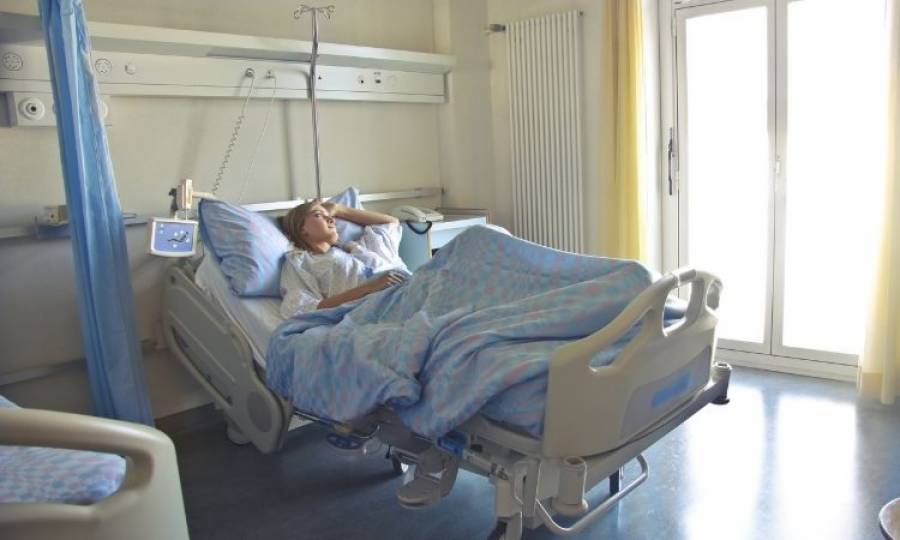Fistula cases slowly declining in Pakistan says, Experts

KARACHI-An estimated 2 million women live with Fistula in developing countries, including Pakistan.
Drastically Decreasing Cases of Fistula in Pakistan
Thousands of women suffer in silence with Fistula in Pakistan, unaware that they can seek medical assistance.
Obstetric Fistula Instances in Pakistan
It's easy to ignore things that you don't know. Obstetric Fistula is one of those things. Obstetric Fistula is one of the things.
But it's a traumatic birthing injury to women who suffer it, typically fatal to unborn babies. But now, here's the encouraging news "Not only treatable but preventable".
Dr Shaheen Zafar on Fistula in Pakistan
These views were shared by Dr Shaheen Zafar, Gynecologist, Koohi Goth Women Hospital, during a press conference held in connection with World Fistula Day. Dr Sonia Naqvi, President PMA, Karachi, Dr Nusrat Shah, Pro-Vice-Chancellor, DUHS and Mrs Sheema Kermani, Tehrik-e-Niswan were also present on this occasion.
She said, recognising the gravity of the challenge at hand, to give importance to this miserable condition, the United Nations Population Fund (UNFPA) and Fistula Foundation celebrate this day on 23rd May every year as "International Day to End Fistula."
Dr Shaheen Zafar explains Obstetric Fistula
Dr Shaheen Zafar explained that obstetric Fistula is a condition that causes added suffering and isolation to at least two million poor and marginalised women and girls worldwide, the United Nations spotlighted on this occasion.
The critical messages for 2022 The International Day to End Obstetric Fistula (IDEOF): promoting universal access to quality care is essential for preventing maternal mortality and morbidity. Fistula can be prevented when women get timely maternity care, including skilled birth attendance, midwifery care, emergency obstetric care (as needed), with accessibility to family planning services.
Community empowerment and participation are critical to successfully addressing the determinants of maternal mortality and morbidity and ensuring the utilisation of fistula prevention and treatment services by women, girls, their families, and communities.
3000 to 5000 women and girls still live with Fistula in Pakistan. Ensuring access to safe, holistic fistula treatment (surgical repair and social reintegration) for all women and girls in need is also essential for eliminating it. A sustainable scale-up of quality treatment and healthcare services, including the availability of adequate numbers of trained, competent fistula surgeons and midwives, is needed to reduce maternal & newborn mortality and eradicate obstetric Fistula significantly.
Ending Fistula by 2030 requires a paradigm shift in our thinking!
2022 The International Day to End Obstetric Fistula (IDEOF) theme:
"End Fistula Now: Invest in Quality Healthcare, Empower Communities"
The theme calls for investments to improve the quality of care for maternal health, fistula prevention, and treatment; and highlights the critical role of communities in addressing social, cultural, political, and economic determinants that impact maternal health and sexual reproductive health, and reproductive rights and contribute to the occurrence of Obstetric Fistula.
Dr Sonia Naqvi's views on Fistula cases in Pakistan
Dr Sonia Naqvi, President of PMA, said to let everyone use the momentum of the SDGs together.
She added that it should be utilised with strong political leadership, amplified investment and action, with passionate and committed champions to achieve this historic and transformative goal; a joint statement from all key participants.
She said this new goal set by the UN to end maternal deaths in 2030; we all believe that it is also possible in Pakistan. This will be only possible IF government show their will and commitment through their policies to END MATERNAL DEATH in line with the SDGs target of 2030 through the following steps.
Dr Nusrat Shah, Pro-Vice-Chancellor, DUHS, suggested training of competent, skilled midwives to be posted in every BHU & THQ, career structure of midwives, increment in their salaries and providing a service structure, activation of BHU and THQ in rural Pakistan and slums of cities and provision of free basic and emergency obstetric care to all pregnant women.
Trending
Popular
Sindh pledges vigorous action to prevent poliovirus transmission
-
PMA stresses health equity on World ...
04:08 PM, 9 Apr, 2024 -
Dow University’s new rabies vaccine ...
12:18 PM, 28 Mar, 2024 -
IRD role lauded in advancing ...
02:53 PM, 12 Mar, 2024 -
Over one billion people worldwide ...
09:48 AM, 5 Mar, 2024




